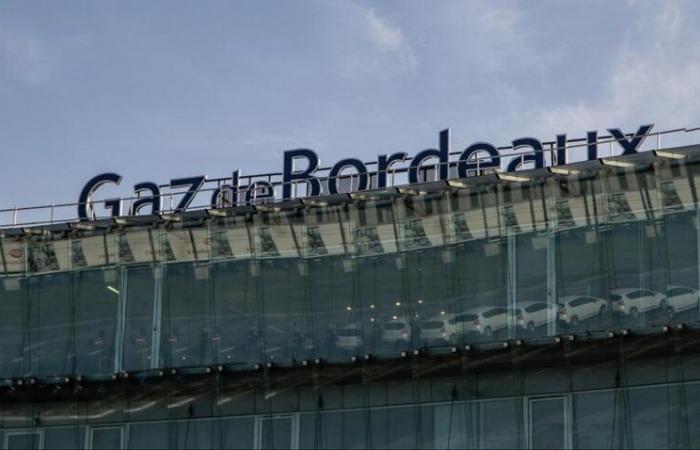Ct is the story of a former municipal authority born in 1919 and which, a hundred years later, became a limited company launched to conquer the energy markets liberalized by Europe. While still being controlled by a public establishment (Bordeaux Métropole).
Gaz de Bordeaux (GDB) was the subject of a report from the Regional Chamber of Accounts (CRC), published this Thursday, November 14, one of the lessons of which is the following: “Since the opening of the gas market , the evolution of the activity and the financial results show that commercial performances have proven to be more than satisfactory, exceeding initial expectations, which were to compensate for the feared customer losses. »
1 Almost alone in its historic area
In Gironde, GDB remains the only supplier to offer contracts to individuals in its historic territory (46 municipalities in the metropolis and Médoc, 206,658 individual customers). “From 2019, an international competitor [NDLR : l’Italien ENI] had tried to establish itself in this market, before withdrawing at the time of the energy crisis,” recalls the CRC.
The court discusses the reasons for this local quasi-monopoly: “The website of the National Energy Mediator mentions the dissuasive nature of prior investments, particularly IT, as a barrier to entry for the development of competition in individual markets” former historical suppliers. “The president of GDB,” adds the CRC, “believes that the low margins generated by residential customers in comparison with the costs to be incurred constitute another factor explaining the sluggishness of competition. »
2 Conquering the markets
In this stronghold, the majority of volumes (68%) are sold to individuals who represent the vast majority of customers (98%). But since 2012-2013, “the company has embarked on the search for new professional customers outside its historic area” (and, very marginally, individuals). In a diversified manner at the beginning, to secure margins, targeting small professionals, industrialists, etc. Then with an emphasis on large public buyers (62% of volumes distributed).
“42% of the portfolio is put back into play each year, which requires GDB to be constantly competitive to limit customer losses”
“Large accounts account for 90% of the quantities sold to professionals and contribute to approximately 75% of the company’s commercial margin,” note the magistrates. For whom this policy has its downside: “Despite good results, the situation remains fragile: with an average contractual duration of twenty-seven months, 42% of the portfolio is brought back into play each year, which forces GDB to be permanently competitive to limit customer losses.
3 Lack of transparency
GDB was present, at the end of 2019, in all departments and in more than 47% of French municipalities (4,700) with access to a natural gas network. Which makes Bordeaux the fifth national gas supplier.
The CRC draws a positive assessment from this development: “GDB has been able to consolidate its position since the opening of the gas market by multiplying the volume of its sales by 2.5 and reaching 24.6 million euros in net profit in 2023 . » But points out uses which relate to a lack of transparency.
First and foremost: “Its commercial practices with residential customers were sanctioned by the Competition Authority which ordered it to pay 1 million euros in 2022 for abuse of a dominant position, in particular due to the low level of information delivered to this clientele of which it remains the sole supplier. »
4 Margins that have doubled
Another point which is worth a recommendation: “Relatively stable until 2021, the margin of gas activity compared to MWh [mégawattheure] has more than doubled in two years. This massive increase is intentional: it aims to substantially strengthen the company’s equity, firstly to meet the financial credibility requirements imposed by suppliers since the outbreak of the energy crisis and, to a lesser extent, to enable GDB to quickly become a player in the electricity market. » Because in 2050, there will be no more gas of fossil origin.
The recommendations of the Regional Chamber of Accounts to Gaz de Bordeaux.
CRC
However, according to the CRC, “for the moment, Gaz de Bordeaux does not produce for the attention of its sole partner [Bordeaux Métropole Énergie, organisme via lequel la Métropole contrôle GDB, NDLR] data to monitor the evolution of margins. » In short, BME could have a say on the level of these margins if they were allowed to look into them. Better informing BME (on strategy, developments, etc.) is one of four of the CRC’s six recommendations.
In a letter in response, Claudine Bichet, president of BME, counters that “it seems quite vain to think in terms of general margins and on the scale of the entire company”. The CRC replies that it is on the contrary “one of the rare synthetic indicators that can be calculated from the information transmitted”.
5 Remuneration and working hours
Among the other points that could be annoying: the (double) remuneration of the general director. “The accumulation by the CEO of a corporate mandate (27,000 euros per year) and a salaried job (110,000 euros) as director of the company’s energy activity must be clarified and better formalized to avoid any questioning of his employment contract. »
The Chamber also questions the advisability of GDB retaining its “structurally loss-making” activity of installing and maintaining heating equipment. But the company is opposed to its spin-off, considering that “its full membership in GDB allows, depending on changes in activity, to carry out job reassignments within the same entity”.
In terms of employment, the CRC notes that employees display a “working time which amounts to 1,538 hours per year and per agent. » That is a deficit of sixty-nine hours compared to the standard of 1,607 hours set by the Labor Code. But this “does not raise a problem of regularity since it results from the automatic application” of the national status of personnel in the electricity and gas industries.






